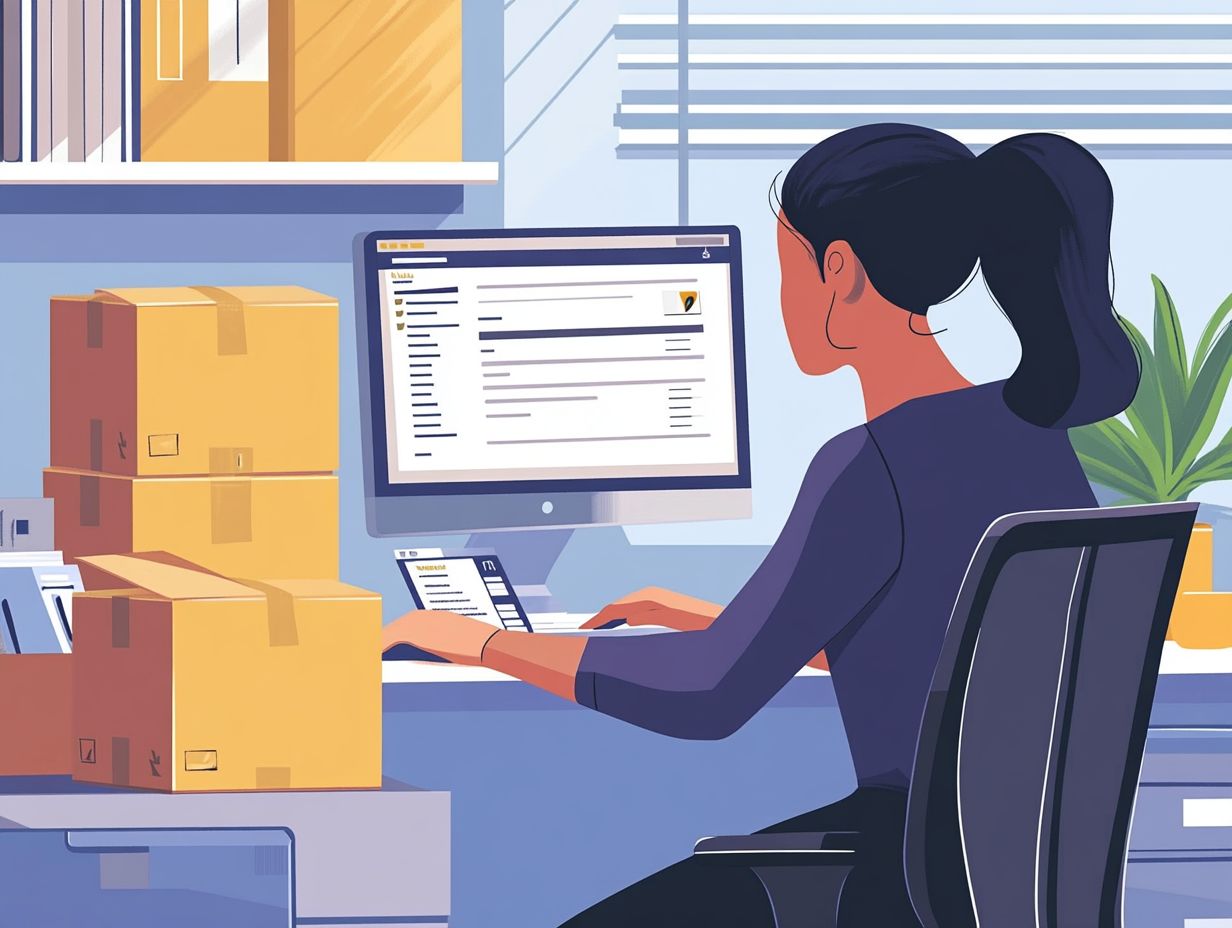What to Do If You Change Your Address?
Changing your address is not just updating a line on a form; it s a crucial step that carries both legal and practical weight.
Whether you re moving nearby or to a new state, knowing when and how to change your address is key to avoiding complications.
This guide offers comprehensive insights, covering timelines, essential notifications, and the importance of updating your personal records.
With practical tips and a structured, step-by-step approach, you ll be ready for a smooth transition.
Contents
- Key Takeaways:
- Why Changing Your Address is Important
- When to Change Your Address
- How to Change Your Address
- Notifying Important Parties
- Updating Your Personal Records
- Tips for a Smooth Address Change
- Frequently Asked Questions
- What do I need to do if I change my address?
- Do I need to notify my bank if I change my address?
- Can I update my address with the post office?
- What about my utilities and other bills?
- Do I need to update my address on my driver’s license?
- What should I do about my voter registration if I change my address?
Key Takeaways:

Notify important parties such as government agencies, banks, and utility companies to avoid service disruptions and ensure timely mail delivery.
Update your personal records, including your driver’s license, voter registration, and insurance policies, to reflect your new address and protect against identity theft.
Plan ahead and stick to timelines and deadlines to avoid complications, making your address change as smooth as possible.
Why Changing Your Address is Important
Changing your address is essential for ensuring your mail reaches you and for compliance with legal obligations.
A proper change of address does more than update your postal service records; it ensures utility companies, banks, credit card providers, health insurance agencies, employers, and tax organizations have your new address.
Don t miss out! Inform these entities to keep everything running smoothly and avoid missed communications, delayed services, and potential legal issues.
Legal and Practical Reasons
The reasons for changing your address center around compliance with regulations and ensuring continuity of services. Failing to update your address can lead to serious legal consequences.
For instance, health insurance providers send crucial information about coverage to your registered address. Missing these communications could impact your medical care. Similarly, tax agencies like the IRS send important documents to the address they have on file, and an outdated address could increase your risk of penalties.
On the practical side, timely address updates help keep your utility services running smoothly. Delaying this could mean being left in the dark literally if your utility company can t reach you.
When to Change Your Address
Knowing the right time to change your address during the moving process is vital for a seamless transition.
It s best to inform all relevant parties of your change at least two weeks before your moving date. This proactive approach gives postal services, utility companies, banks, and credit card companies time to update their records.
Timeline and Deadlines
Following a timeline and meeting deadlines for your address change is crucial for a smooth transition. This process should start at least a month before you relocate.
Your first step should be notifying the postal service at least two weeks in advance so your mail doesn t get lost. Utility companies also need timely notice; let them know at least five days before your move to ensure services are turned off at your old place and on at your new home.
For banks and credit card providers, a few days should be enough to update your information and protect your financial transactions.
Using a checklist can help you track these important deadlines and ensure no critical tasks slip through the cracks as moving day approaches.
Ready to move? Start updating your address today for a smooth transition!
How to Change Your Address

Changing your address can be a seamless experience with a strategic mindset. By understanding how to notify moving services and updating your address with the postal service, you can simplify the entire process.
To kick off your change of address journey, start by completing the necessary forms with the United States Postal Service, either online or in person. This will ensure a smooth transition for receiving mail at your new location.
Step-by-Step Guide
A comprehensive step-by-step guide for changing your address can significantly streamline the process. This ensures you don t overlook any essential notifications.
By breaking tasks into manageable steps, you can easily navigate the paperwork and online forms required for your address change. It’s crucial to identify the specific forms that need to be completed, including those for governmental agencies, utility providers, and subscription services.
Notify banks and insurance companies right away to maintain seamless communication. Using online tools can further expedite the process, making it quicker and more efficient.
This way, you can focus on settling into your new home without the stress of missing important updates.
Notifying Important Parties
Informing key parties about your change of address is essential for maintaining uninterrupted services and ensuring that important communications reach you.
This means you’ll want to inform the following parties:
- United States Postal Service
- Utility companies
- Banks
- Credit card providers
- Health insurance
- Employers
- Tax agencies
- Subscription services
Taking these steps will help you avoid complications and keep everything running smoothly.
Organizations and Individuals to Notify
When changing your address, it s crucial to create a comprehensive list of organizations and individuals to notify. This helps you avoid missing important updates.
Start by reaching out to utility companies like water, electricity, and gas. Keeping these services running smoothly is key to your comfort in the new space.
Next, don t overlook your bank and credit card providers. Update them to ensure that your sensitive information remains secure and easily accessible. Don’t forget to update your health insurance provider with your new address to keep your medical records accurate.
Consider drafting a notification letter for friends and family that includes your new address and an invitation to stay in touch. Be clear and concise in your communication. Tailor your messages based on your relationship with each recipient; making them feel valued goes a long way.
Updating Your Personal Records
Updating your personal records is a crucial step in the moving process. It ensures that all your important documents accurately reflect your new address.
This involves refreshing your driver’s license, voter registration, social security information, and other essential accounts.
By doing so, you can prevent complications with identity verification and service eligibility, allowing for a seamless transition into your new environment.
Documents and Accounts to Update

When updating your personal records, include all essential documents and accounts that require your new address. This often includes your health insurance policies, which should accurately reflect your current residence to ensure you receive the correct coverage.
Also, update your driver s license; keeping it synced with your new address is essential, and you can typically handle this online or at your local DMV. Don t overlook your voter registration a way to ensure you can vote in elections in your new district is vital.
To make these changes as seamless as possible, check each organization’s website for specific instructions and necessary documentation. Many provide straightforward steps for online updates, making the process smoother for you.
Take a few minutes to check off this list now!
Tips for a Smooth Address Change
To guarantee a seamless address change, it s crucial to embrace moving tips that help you avoid common pitfalls. This includes notifying friends and family and ensuring that delivery services and veterinary clinics have your new information.
By planning ahead and creating a comprehensive checklist, you can significantly alleviate stress and ensure that everyone who needs to know about your new address is informed.
Common Pitfalls and How to Avoid Them
When you change your address, being aware of common pitfalls can help you avoid complications and ensure a smooth transition.
Many people overlook the importance of notifying essential organizations, such as banks, credit card companies, and subscription services. This oversight can lead to disruptions in important communications.
Missing deadlines especially for sending your mail to your new address or updating your driver s license can result in unnecessary headaches and frustrating delays. To sidestep these issues, create a checklist detailing each entity that requires notification. Setting reminders will help you make timely updates.
Using online services can simplify the process, making it easier for you to manage the transition effectively and stay organized.
Frequently Asked Questions
What do I need to do if I change my address?
If you change your address, you’ll need to update your information with various organizations and agencies. This includes your bank, employer, post office, and government agencies like the IRS and DMV.
Do I need to notify my bank if I change my address?

Yes, it’s important to notify your bank if you change your address. This ensures that any important documents or communications are sent to your new address. You can usually update your address online or by calling the customer service number on your bank’s website.
Can I update my address with the post office?
Yes, you can update your address with the post office by filling out a change of address form. This can be done online, at your local post office, or by mail. There is a small fee for this service, but it will ensure that your mail is forwarded to your new address for a specific period.
What about my utilities and other bills?
When you change your address, contact your utility companies and other service providers to update your information. This includes electricity, gas, water, internet, and cable providers. You don’t want to miss any important bills or risk service interruptions due to an outdated address.
Do I need to update my address on my driver’s license?
Yes, it’s important to update your address on your driver’s license as soon as possible. This can usually be done online or in person at your local DMV office. Keeping your license updated helps you avoid issues down the road!
What should I do about my voter registration if I change my address?
If you change your address, you’ll need to update your voter registration as well. This can usually be done online or by mail, depending on your state’s requirements. Updating your voter registration is crucial to ensure you are eligible to vote in your new district.
Get started on your address change today!




